A World on Fire: Britain's Crucial Role in the American Civil War (147 page)
Read A World on Fire: Britain's Crucial Role in the American Civil War Online
Authors: Amanda Foreman
Tags: #Europe, #International Relations, #Modern, #General, #United States, #Great Britain, #Public Opinion, #Political Science, #Civil War Period (1850-1877), #19th Century, #History

51.
General Ambrose Burnside (1824–81), commander of the U.S. Army of the Potomac for less than three months. His exuberant facial hair allegedly gave rise to the term “sideburns.”

52.
Fredericksburg. Confederate General Robert E. Lee won a stunning victory over Burnside at the Battle of Fredericksburg on December 13, 1862. Burnside ordered the Federal soldiers to charge across a plain overlooked by a seven-mile range of wooded hills filled with Confederate artillery. When asked if any more guns were needed, the artillery officer in charge replied, “A chicken could not live on that field when we open on it.”

53.
Marye’s Heights. The famous stone wall along the heights of Fredericksburg gave the Confederates perfect protection while they fired upon the Federals below. Burnside sustained 12,600 casualties to Lee’s 5,000.
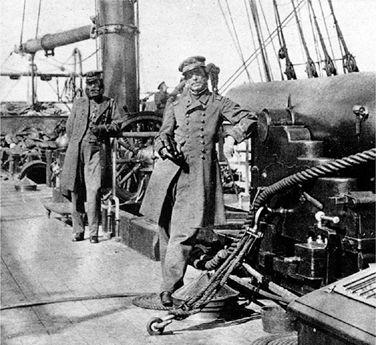
54.
Admiral Raphael Semmes (1809–77), who commanded two commerce raiders of the Confederate navy. His exploits on CSS Alabama inspired the Junior United Service Club of Great Britain to present him with a “magnificent sword, which had been manufactured to their order in the city of London, with suitable naval and Southern devices.”

55.
Commander Matthew Fontaine Maury (1806–73), Confederate navy, nicknamed “pathfinder of the seas” for his study of the ocean currents, which made travel easier and faster. Maury was sent to England during the war to purchase commerce raiders for the Confederate navy.
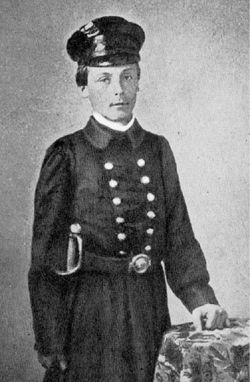
56.
Lieutenant James Morgan (1845–1928), Confederate navy, friend and future brother-in-law of the English Confederate volunteer Francis Dawson. Morgan served on Commander Maury’s commerce raider CSS Georgia, whose cruise ended in madness and savagery after only six months at sea.
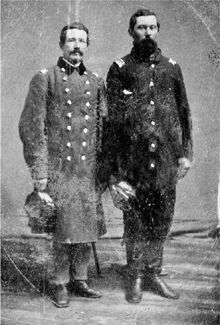
57.
Colonel John Fitzroy De Courcy (1821–90), 31st Baron Kingsale (left), British volunteer in the Union army and colonel of the 16th Ohio Volunteer Infantry. In 1863 De Courcy captured the Cumberland Gap from the Confederates with a force less than half the size of his opponents by tricking them into believing they were surrounded by a huge army.
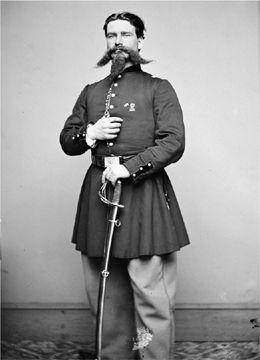
58.
Colonel Sir Percy Wyndham (1833–79), British volunteer in the Union army, knighted by King Victor Emmanuel for his services during the Garibaldi campaign to liberate southern Italy, and colonel of the 1st New Jersey Cavaliers. Sir Percy only ever twiddled his moustache when angry.
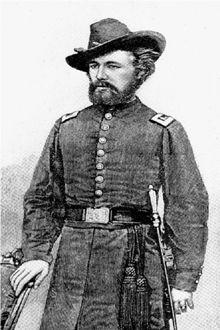
59.
Dr. Charles Culverwell (1837–1919), British volunteer surgeon in the Union army, who yearned to become an actor and between campaigns appeared several times on the stage, including with John Wilkes Booth in Hamlet at Grover’s Theater. “They would rave of him, his voice, his hair, and his eyes. Small wonder for he was fascinating … Poor sad, mad, bad John Wilkes Booth.” After the war, Culverwell became Sir Charles Wyndham, one of the most successful actors of his generation.
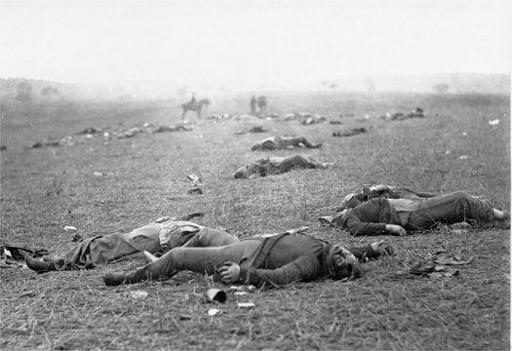
60.
Battle of Gettysburg, July 1–3, 1863. The bloodiest battle of the Civil War resulted in more than 43,000 casualties. Confederate General Robert E. Lee withdrew first, giving the psychological edge to U.S. General George Meade.
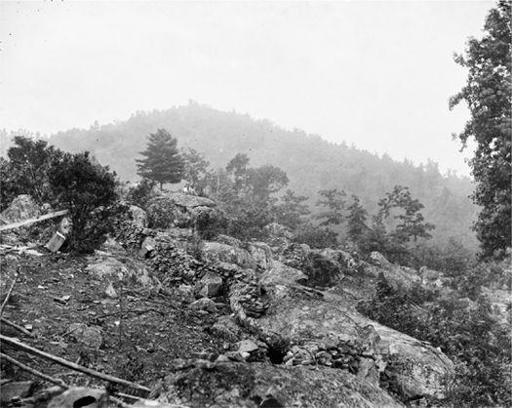
61.
Little Round Top, Gettysburg. U.S. Colonel Joshua Chamberlain and his 20th Maine held Little Round Top for Meade, depriving Lee of the high ground that the Confederate General needed in order to seize control of the battle. Chamberlain later received the surrender of Lee’s army in 1865.